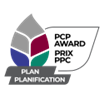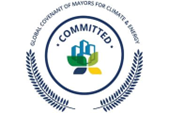Search
Learn more about what St. John's is doing today to address sustainability.
Enabling actions + smart growth
Community model: GHG emission |
|
A holistic community model was developed to understand energy and GHG emission from our community as a whole for both a business-as-usual (BAP) and the low-carbon (LC) future. |
Corporate and Community Energy and Greenhouse Gas Inventory |
|
In 2018, the community of the City of St. John's consumed approximately 14.4 million gigajoules (GJ) of energy, which emitted 667 thousand tonnes of carbon dioxide equivalents (tCO2e). Electricity, gasoline, and fuel oil contributed the most to the energy used (44%, 39%, and 15% respectively). The Corporate and Community Energy and Greenhouse Gas Inventory measures the energy use and GHG emissions generated by key activities within the selected boundary of the City of St. John's. |
Environment and Sustainability Experts Panel |
|
The Environment and Sustainability Experts Panel provides expertise, opinion, and perspective about environmental and sustainability matters. This includes the City of St. John's energy intensity, greenhouse gas emissions, adaptation resilience, and environment. |
Transportation transformation
Roundabouts |
|
Roundabouts reduce vehicle accidents and delay time at intersection. This reduces fuel consumption and emissions from vehicles at intersections. |
Sustainable transportation |
|
The Bike Master Plan and the Metrobus Market Assessment and Strategic Directions Study address ways of making more modes of transportation available to reduce the community's dependency on cars and quality of life. |
Clean energy for resilience
Geothermal and heat recovery systems |
|
Geothermal and heat recovery systems like the one at Paul Reynold Community Centre improve the energy efficiency of our facilities, reducing the need for the facilities to use heating oil or other energy sources. |
|
Reusing biogas |
|
The Riverhead anaerobic digester reduces the need for the Riverhead facility to use heating oil, reducing emissions from fossil fuels. |
Non-energy emissions: low-waste future + green spaces
Backyard composting |
|
Composting is an aerobic process that reduces or prevents the release of methane during organic matter breakdown. Composting on-site further reduces the need to frequently transport the organic matter. |
Christmas tree recycling |
|
Christmas trees are mulched and used as ground cover. This improves the capability of soils to retain greenhouse gases and improves overall soil health. |
Landfill gas management |
|
Robin Hood Bay landfill gas capture and destruction allows the city to capture landfill gases which otherwise end up in the atmosphere. A portion of this gas is methane, which is a powerful greenhouse gas (28 times more potent than carbon dioxide). Burning the landfill gas reduces its potential to act as a greenhouse gas by turning the methane into carbon dioxide and water. |
Recycling |
|
Recycling generally prevents the waste of potentially useful materials, reduces the consumption of raw materials and reduces energy usage, and hence greenhouse gas emissions, compared to virgin production. |
Resilient Natural Environment and Built Infrastructure
Floodplain mapping |
|
The City supports the provincial level adaptation efforts by using the floodplain maps which incorporate climate change projections. |
Natural area stewardship |
|
Natural areas provide a suite of ecosystem services, some of which support the sustainability of the community (e.g., flood protection, wind attenuation, biodiversity, air filtration, water infiltration, recreation, etc.). The City's Parks and Open Spaces Master Plan addresses the protection of natural areas within City boundaries. |
Naturalization of the urban forest |
|
Active naturalization restores areas to more natural conditions using trees, shrubs and flowers that are native to the area. It helps preserve and celebrate the natural environment found in our region. Natural areas within our city, in the era of climate change, are our buffer which will help protect our neighbourhoods and community as a whole from changes in climate, and invasive species, while also providing a home for important pollinators such as bees and butterflies. |
Save a Drop water conservation |
|
The conservation of drinking water ensures the City has a sustainable water source in the short term and for the future. |
Water quality benchmarking |
|
The National Water Benchmarking Initiative ensures efficiency, including the best use of energy. |
Winter maintenance benchmarking |
|
By benchmarking our winter snow clearing operations, we ensure efficiency and the best use of energy. |
Disaster Resilience
Emergency planning |
|
Having a plan and being prepared in face of disaster is part of a resilient city. |
Federation of Canadian Municipalities’ (FCM) Partners for Climate Protection Program (since 2000). The program outlines a five-step milestone framework that guides municipalities as they improve sustainability and reduce greenhouse gas emissions (GHGs).
St. John’s completed Milestones: (1) GHG Inventory, (2) Target Setting, and (3) Planning Milestones in 2022 for both Corporate and Community scopes.
Contact Us







